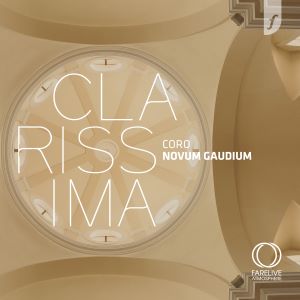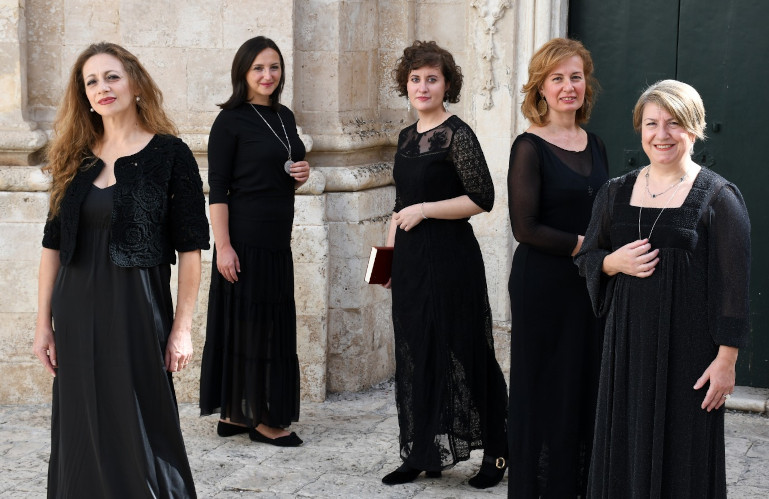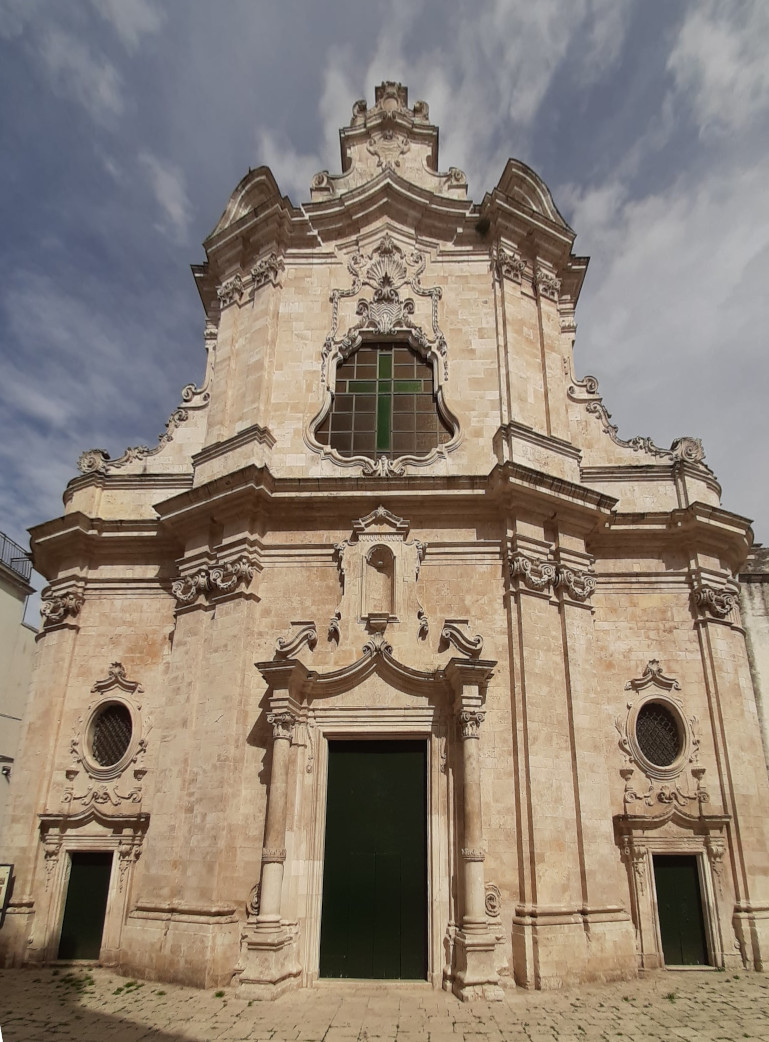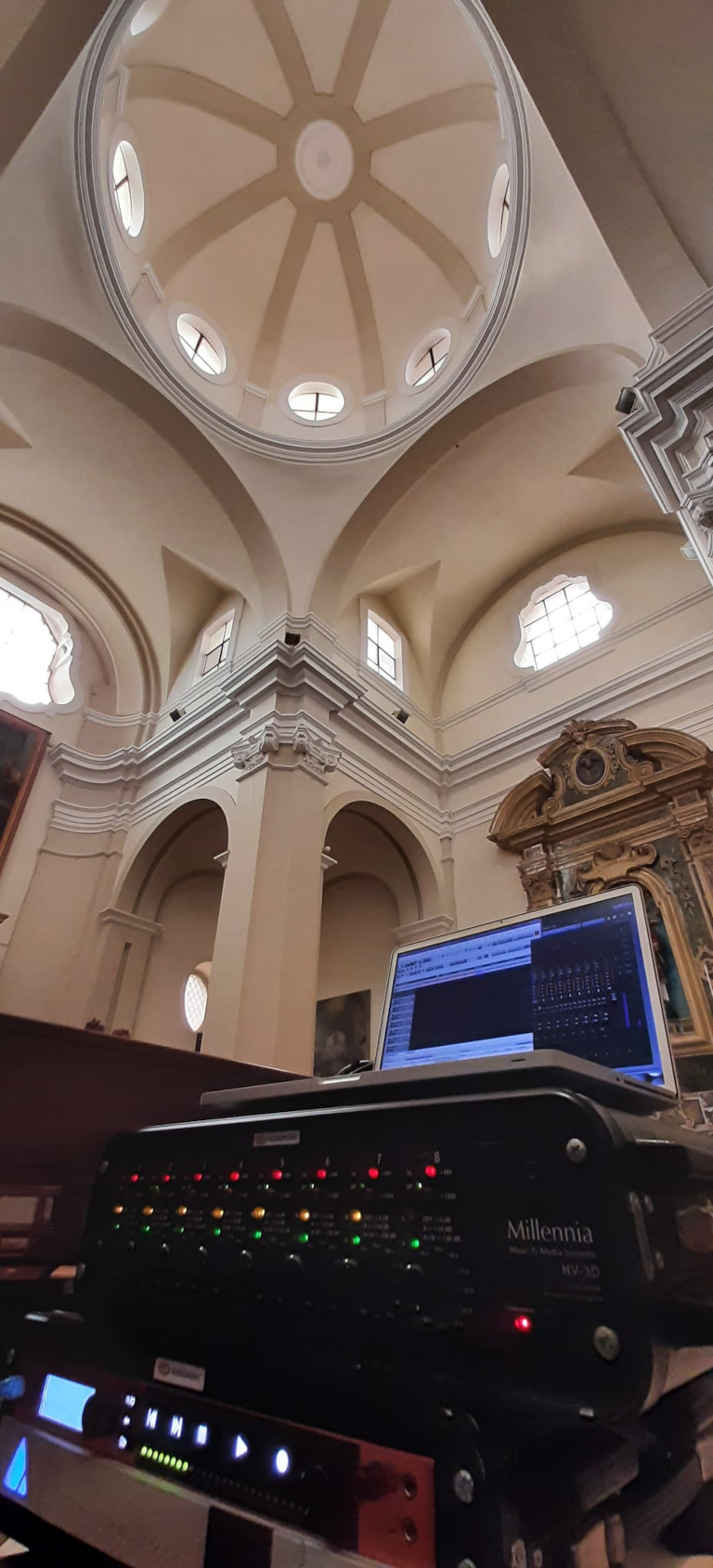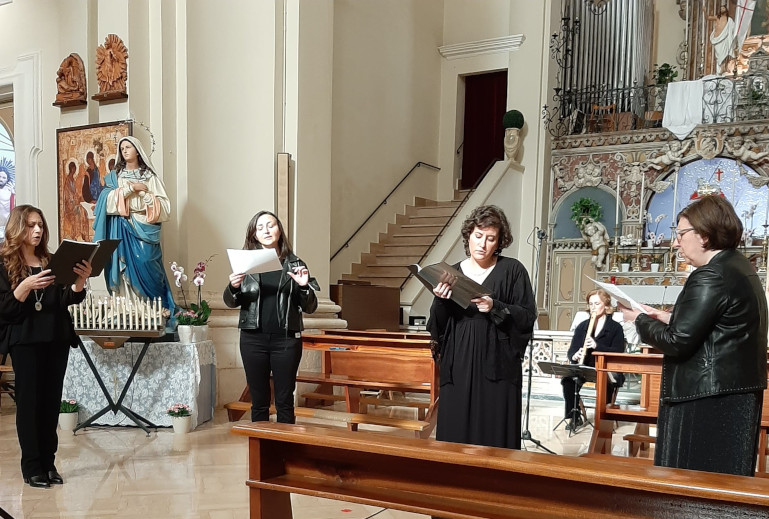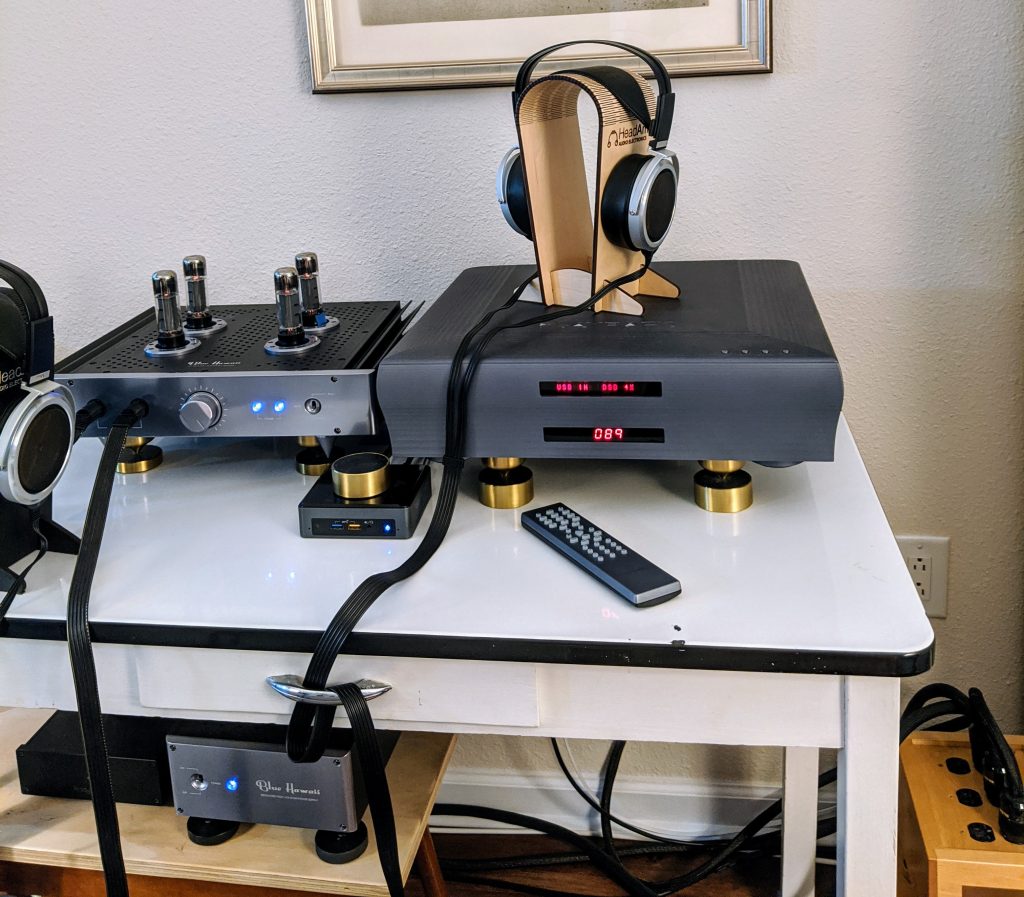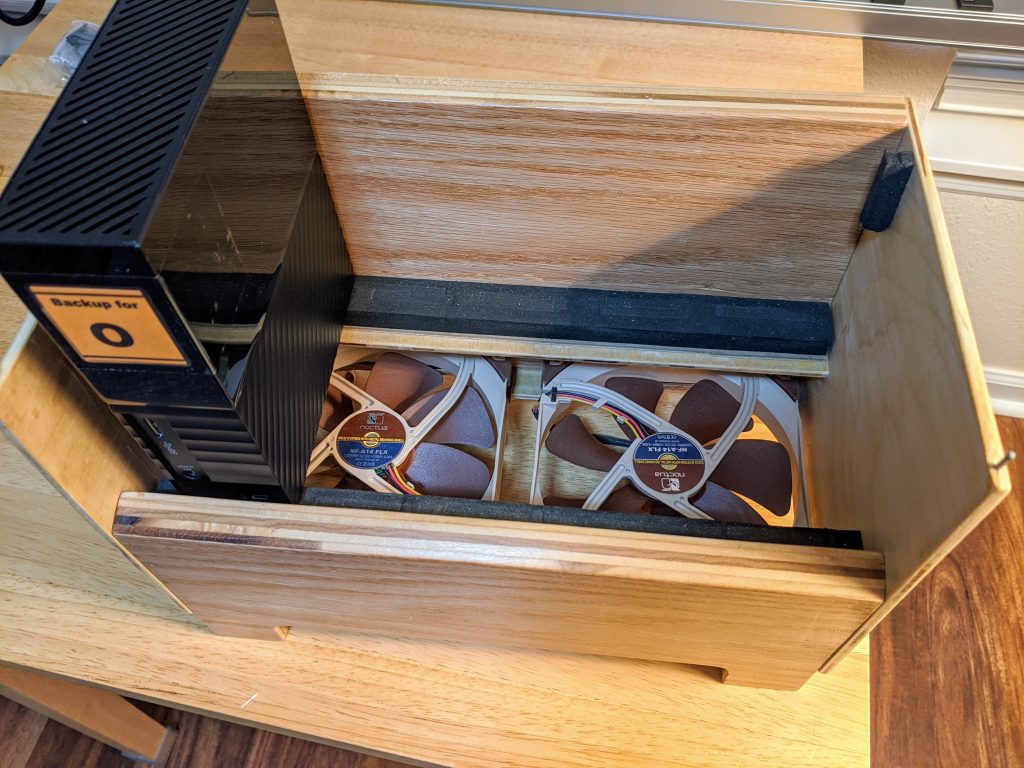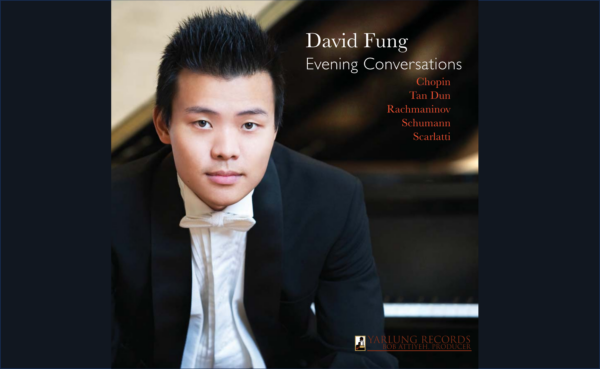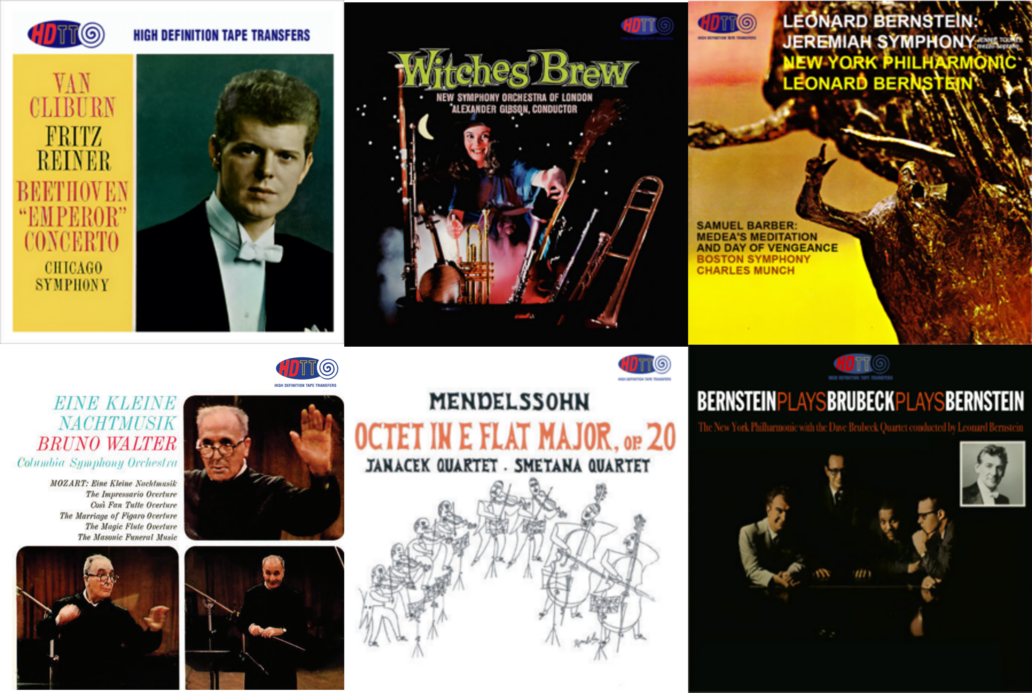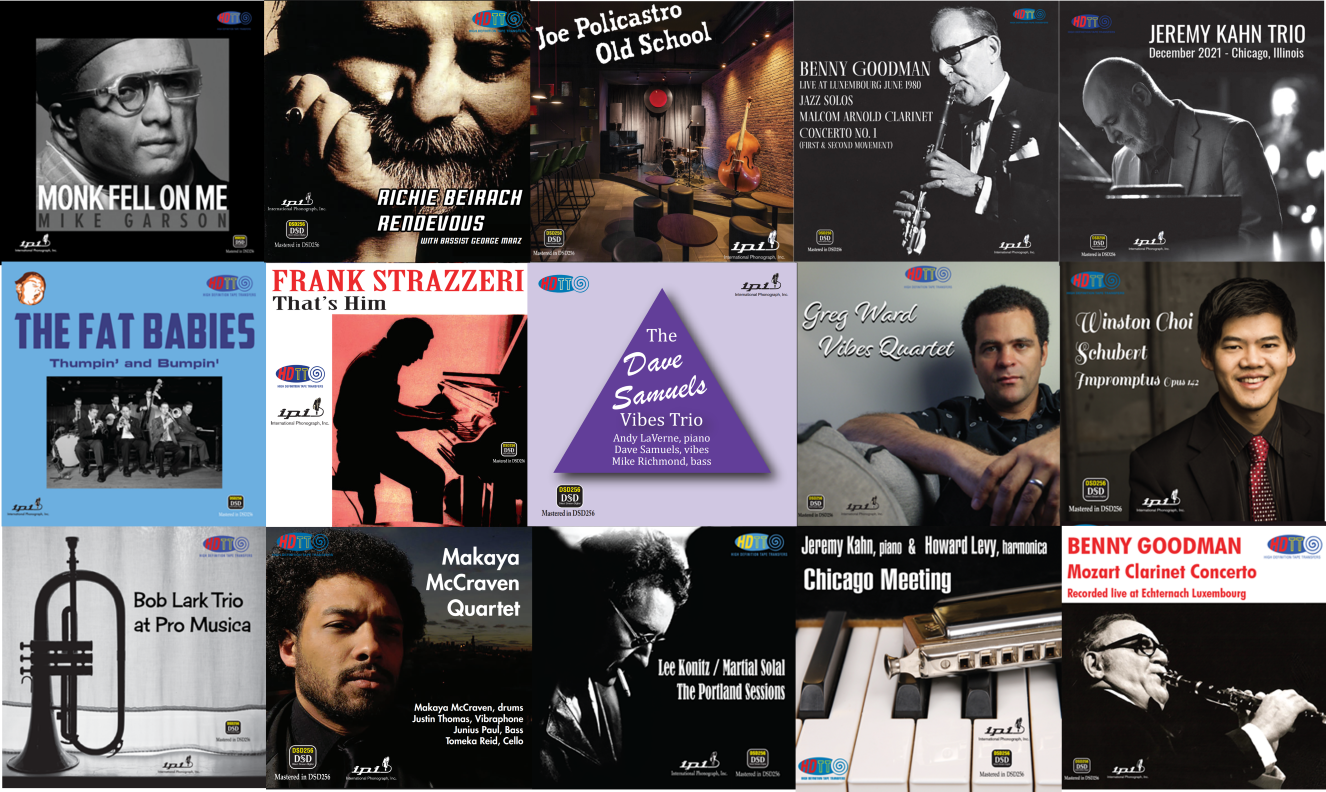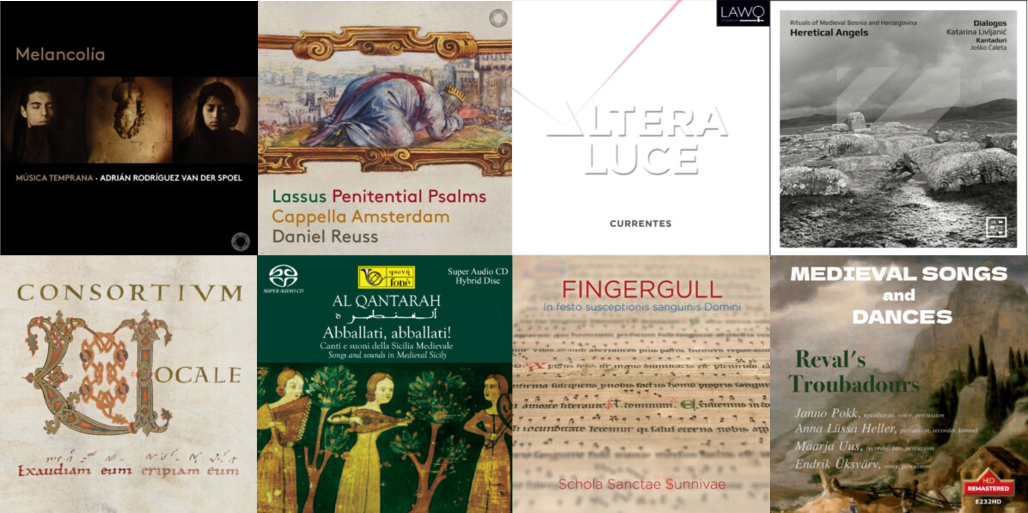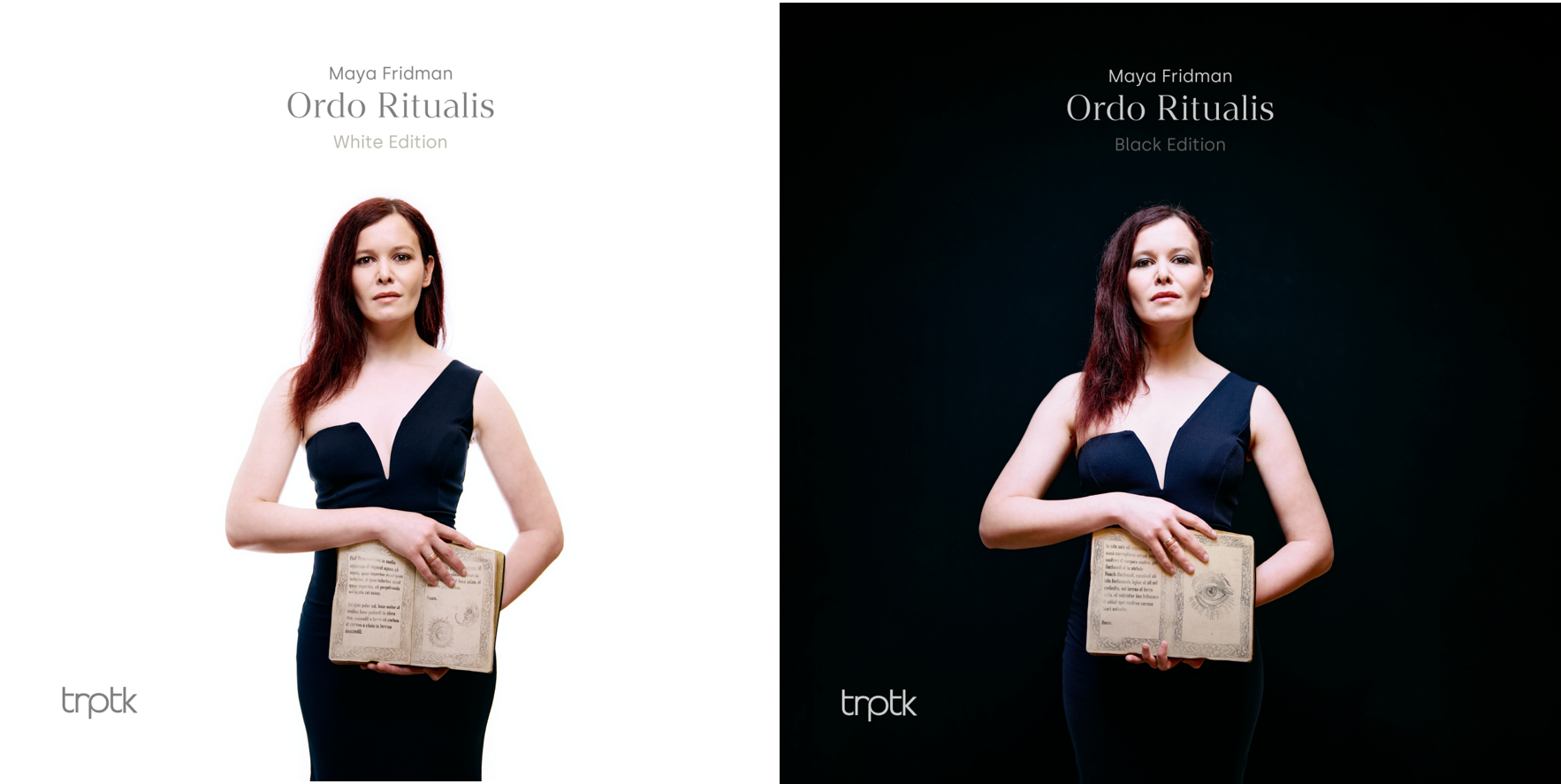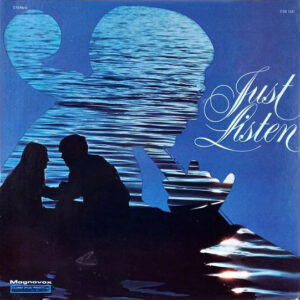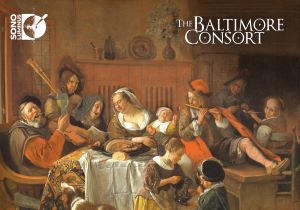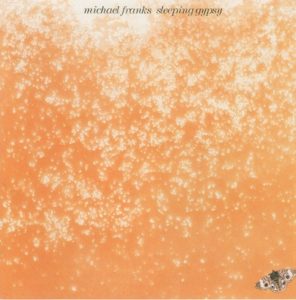Enjoy Gregorian Chant? I have a new album you may just love. Beautifully sung by the Gregorian female choir Novum Gaudium. With a repertoire around the Marian theme, the pieces on this album have been selected for variety of style, compositional technique, and complexity of sound textures. An intriguing and very gratifying presentation of great richness.
Clarissima by Coro Novum Gaudium. Farelive 2021 (DXD) HERE
The Coro Novum Gaudium was founded in 1988 and has performed regularly since that time with the goal of sharing the Gregorian repertoire and medieval sacred polyphony both in liturgy and in concert. The group additionally extends their performance repertoire to pieces from Renaissance and Baroque, but this recording stays completely in the earlier medieval traditions.
In this album, the pieces selected are from the Marian tradition of praise of Mary Mother of God, a long-established theme within the Christian Catholic liturgy. One does not have to be a person of faith, nor a Catholic, to find great enjoyment and a spiritual uplift in these works. So, regardless of your beliefs, I encourage you to explore this music. It is part of the wonderful gift of great music that has come from the Western Christian tradition, and yet another aspect of the musical depth and complexity we are privileged to experience from explorations across all cultures.
It is sometimes thought that medieval chant is the domain of men's voices only and that the use of women's voices in these works is somehow anachronistic. I don't believe this to be true. As example, an article in the New Liturgical Movement, titled "Women and Chant," comments:
"After all, women have been singing all chants for the whole history of the Church, in convents in particular. Where there is a tradition of boys choirs, that is one thing. But we do well to recall that the very first composer in Christendom that is known by us by name is the 11th century mystic Hildegard von Bingin, who composed settings of prayers and proper texts and were beloved for centuries. William Byrd's editions of polyphonic propers from the 16th century England have signatures of women singers within mixed choirs.
"Going back to the Patristic age, chant scholar Mary Berry has variously pointed to St. Blesilla, one of the Roman nobles directed by St Jerome in the 4th century. He in a letter praises her for her rendering of the Alleluia at Mass." HERE
And haven't we audiophiles listened to The Anonymous Four for several decades now, with one of their earlier releases being An English Ladymass: medieval chant and polyphony (1992), and later The Origin of Fire: Music and Visions of Hildegard von Bingen (2005)? All women, just only four whereas Novum Gaudium has a complement of five.
Are these performers the equal of The Anonymous Four? Well, here I tread on dangerous ground, indeed, but Novum Gaudium do strike me as very comparably skilled and as vocally pure and harmonious. Really, I find them quite a treat. Moreover, I find Coro Novum Gaudium's selection of music more diverse and complex in timbre than many of the albums of the Four (whose recordings I have cherished). Perhaps it is their subtle use of recorder and symphonia to complement the voice on a few of the selections, perhaps it is the mix of five rather than four voices. Whatever may be the cause, this greater diversity and complex timbre strikes me as something very nice to enjoy in this album.
Exquisitely recorded in the Chiesa S. Maria La Greca, Putignano, Italy (photos above), the sound is resonant and nicely reverberant, nicely capturing the acoustics of the space. Recording engineer and Farelive founder, Eustacchio Montemurro, has given us a sonic pleasure to enjoy. This is very clearly an on-site recording in a venue that complements the music exceptionally well. One easily senses the large open space of the church, with its very nice reverberation time, while still achieving excellent clarity and resolution in the voices. Nicely done.
So, how can I best sum up this album…? ("Don't you dare say heavenly," says my listening partner.) Okay, how about the same way I started: beautifully sung, nicely diverse, and completely engaging—well worth your consideration as it has been mine. If you want just a taste of the elegant sound of this album, I suggest sampling the title track, "O Clarissima" by Hildegard von Bingen, track 10, on whatever streaming service you prefer. Or, better, just get the entire album and enjoy it.
Photos courtesy of Domenico Intini and Farelive.




